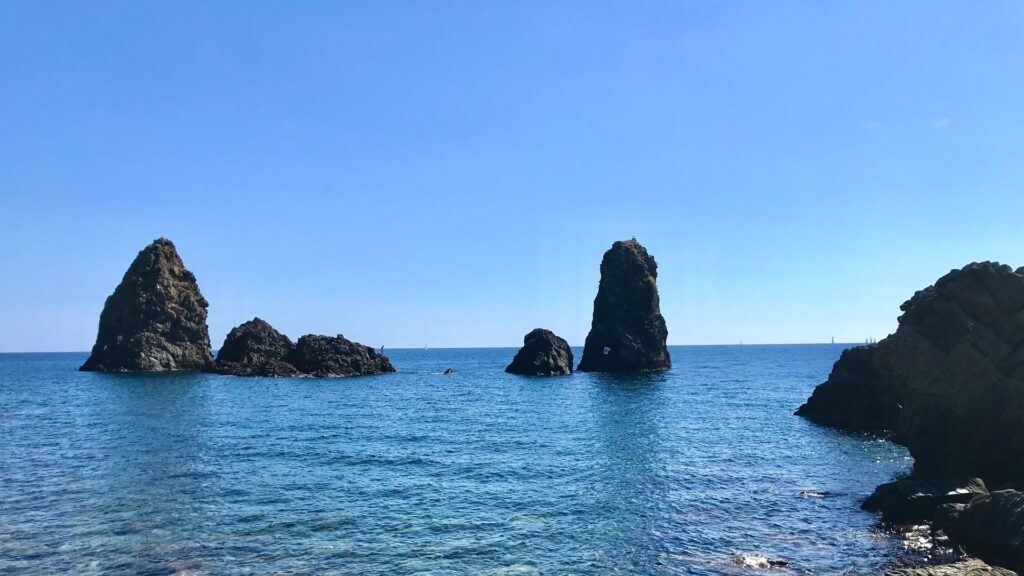AN ADVENTURE IN SICILY
Reconciliation and welcome
AN ADVENTURE IN SICILY
In the second book of the Aeneid, dedicated to Aeneas’ account to Dido of the sad adventures of the Trojans, Virgil describes through Aeneas’ own words the anger and desperation that assail Anchises’ son in the face of the burning city and the slaughter of young and old alike. Aeneas would like to take revenge by killing as many enemies as possible, seeking death himself. His wife Creusa will restore his hope and give him a perspective for the future. In the story of that night, the possible seed of hatred and revenge against the Greeks appears.
During the long wanderings of Aeneas, he again encounters the enemy, a Greek: Achaemenides of Ithaca, companion of the most ruthless of the Greeks, Ulysses. The Trojans land in Sicily, on the slopes of Mount Etna (Book III, 564 et seq.). Ulysses also passed through there (Odyssey Book IX). Through his cunning he managed to blind the giant Polyphemus, son of Poseidon, in order to flee with his companions from the cave in which they were imprisoned, and to escape by sea. But Achaemenides, the last to reach the beach, was unable to board the ship with his companions. For a long time he has lived hidden in the woods at the foot of Mount Etna. He is ragged, tired, weak. What better occasion for Aeneas and his companions to take revenge for the destruction of Troy?

©Photo by Carla Vinci on Unsplash
But the Trojans do not see him as an enemy, but as an exile, a tired and frail man.
Aeneas’ father, old Anchises, makes a gesture that Achaemenides had not foreseen. He offers his hand to Ulysses’ companion and helps him get up.
“Father Anchises himself, without any hesitation, offers his hand to the young man and with that sign of peace encourages him‘ (III, 610-611).
Achaemenides tells his story and confesses. In the Trojans, the instinct for revenge prevails over a feeling of human consideration in the common destiny of suffering.
But while the gesture of reconciliation is being made, Polyphemus is advancing from the mountain, turning towards the beach. Again, mortal danger. We must flee.
“Having welcomed the deserving beggar among us, we hasten our flight, trembling, and in silence we cast off; bent over, we ride the sea, using our oars for strength” (III, 366-368).
© Cover image: Photo by Giuseppe Famiani on Unsplash


